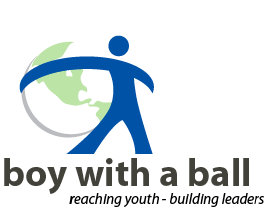Reuters AlertNet - FEATURE-From street child to surgeon, Indian girl follows dream
18 Feb 2007 23:03:49 GMT
Source: Reuters
By Jeremy Lovell
JAIPUR, India, Feb 19 (Reuters) - Former child prostitute Chand has a burning ambition — to be a doctor helping India’s destitute millions.
And the 16-year-old girl is bright enough to realise her dream, according to the charity that 10 years ago rescued her from the teeming streets of the northern Indian city of Jaipur with a population of some three million people.
“I want to be a surgeon. There are too many people and too few doctors here,” the slim youngster told Reuters on a visit to the Ladli centre where she lives and learns in the sprawling metropolis dubbed the Pink City from the colour of its walls.
“That is my goal. In my society girls have very little chance to get an education. Here I have a chance,” she added, seated under a tree in the dusty yard of the school.
Her story is as heart-rending as it is common. Only the end is different — maybe.
Women, still considered by many as a commodity even in the 21st century, are neglected in the educational system and often sidelined in the social hierarchy.
According to UNICEF — the United Nations’ Childrens’ Fund — there are over two million prostitutes in India of whom some 500,000 are children or minors.
Some reports suggest that up to 200 women and children a day are forced into the world’s oldest profession to pay debts or simply to provide an income for their families.
OUTREACH RESCUE
Chand’s mother was a prostitute with 16 children living in Japiur’s red light area, and the girl — her family name has been withheld to protect her — was already a child prostitute when she ran away to eke an existence on the streets aged six.
Ladli outreach workers found her and took her in to the sanctuary that it offers for abused, orphaned and destitute children in the Rajasthan state capital of 2.8 million people, 260 km (160 miles) southwest of Delhi.
“We try to give the children here their lives back,” said founder Abha Goswami, 50. “We are giving love to our children. We are giving care to our children.”
Goswami, whose mother died when she was just 18 months old and who was orphaned at 16, founded the I-India project in 1993 giving help to 500 of Jaipur’s street children.
Three years later it set up the Child Inn boys home and the Ladli girls home and in 2000 it got its two School on Wheels buses touring the streets offering basic reading and writing lessons to children who would otherwise have no education.
Last year some 3,000 children passed through the hands of Goswami and her helpers — either through the buses or the four homes and one vocational centre — also called Ladli — that I-India now operates.
GIVING LIFE TO CHILDREN
But resources are scarce. The organisation can not offer residential care to more than a handful of children, so the majority go back home or onto the streets every night.
“We have street children, runaways, orphans, children of prostitutes — often child prostitutes themselves — and abandoned children from divided families,” Goswami said. “But we can’t feed everyone in our homes.”
Even for Chand, there is the constant threat of her past dragging her back to wreck her future.
“If I saw my family again they would want me back to become a prostitute again to earn money,” she said simply.
It is an endless struggle with scant help from the government and the centre heavily reliant on its own fund raising and foreign sponsors of individual projects.
One such project is for the children to make and sell jewellery.
At the moment it is 50 percent funded by a sponsor, but the goal is to make it completely self-sufficient — and for each piece that is sold some money is put into a bank account for the girls for when they grow up and leave.
The projects are a beacon of light in a country whose economy is booming but where some 35 million of the one billion population are orphans and where around 300 million people are living on less than $1 a day — of whom 140 million are children.
“Our children are safe here. We feed them and teach them … We give them skills and hope, so they can make their way and earn a living later in life,” Goswami said.
“For just a few dollars a day we can give life back to a child here,” she added.
Subscribe to:
Post Comments (Atom)

1 comment:
Post a Comment